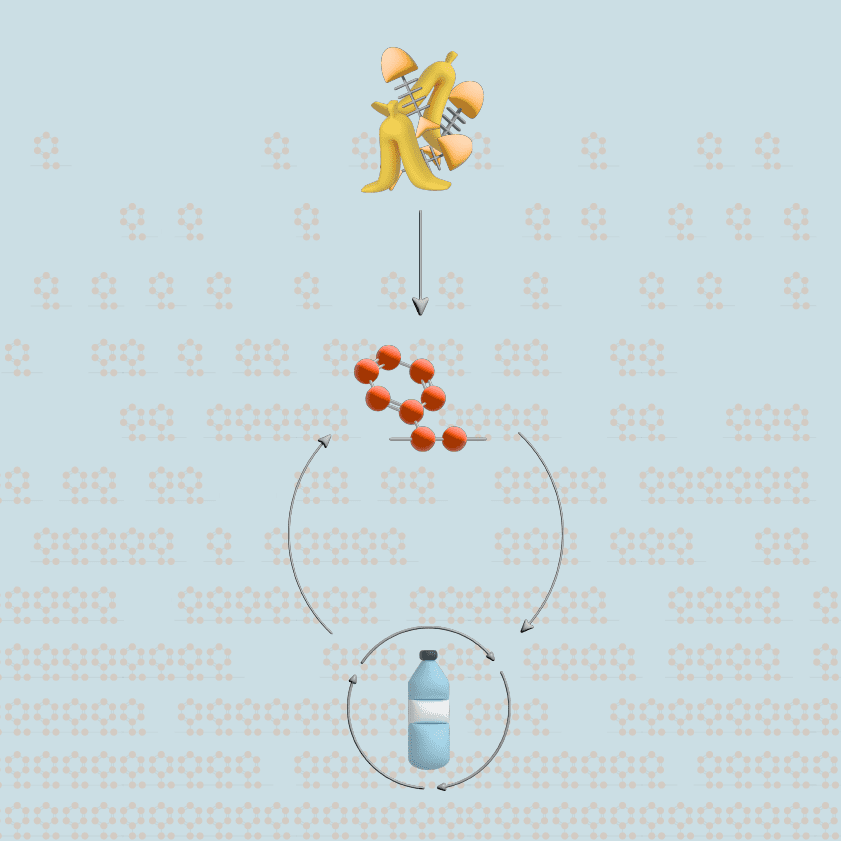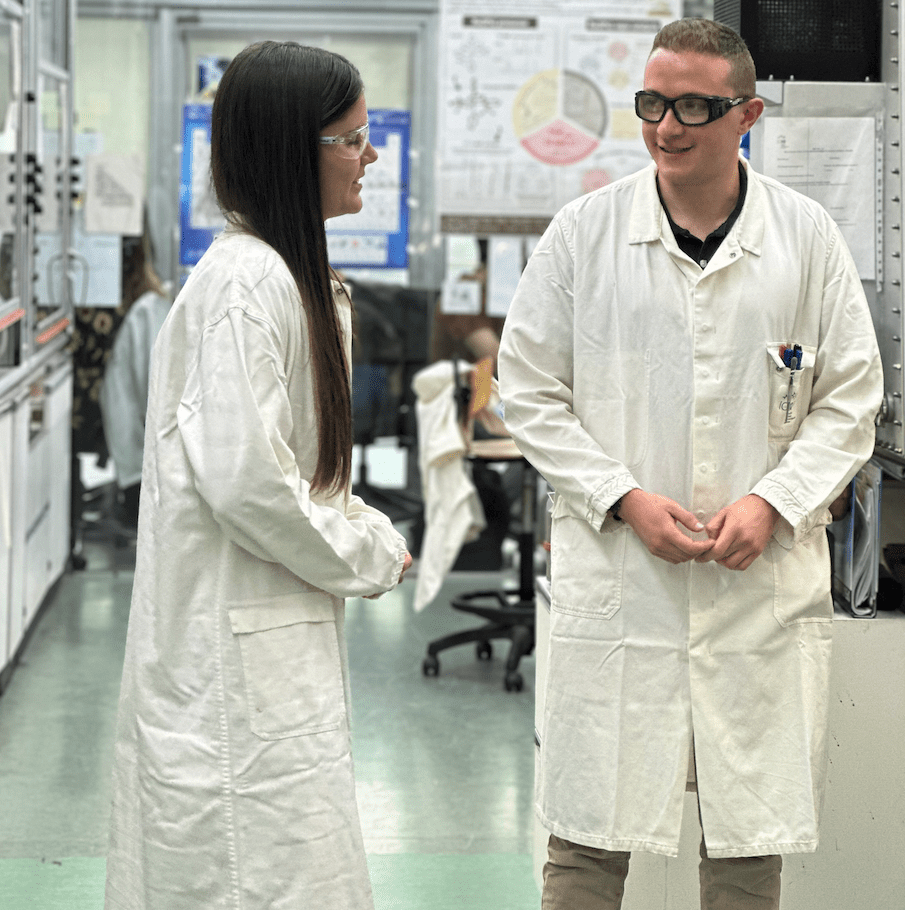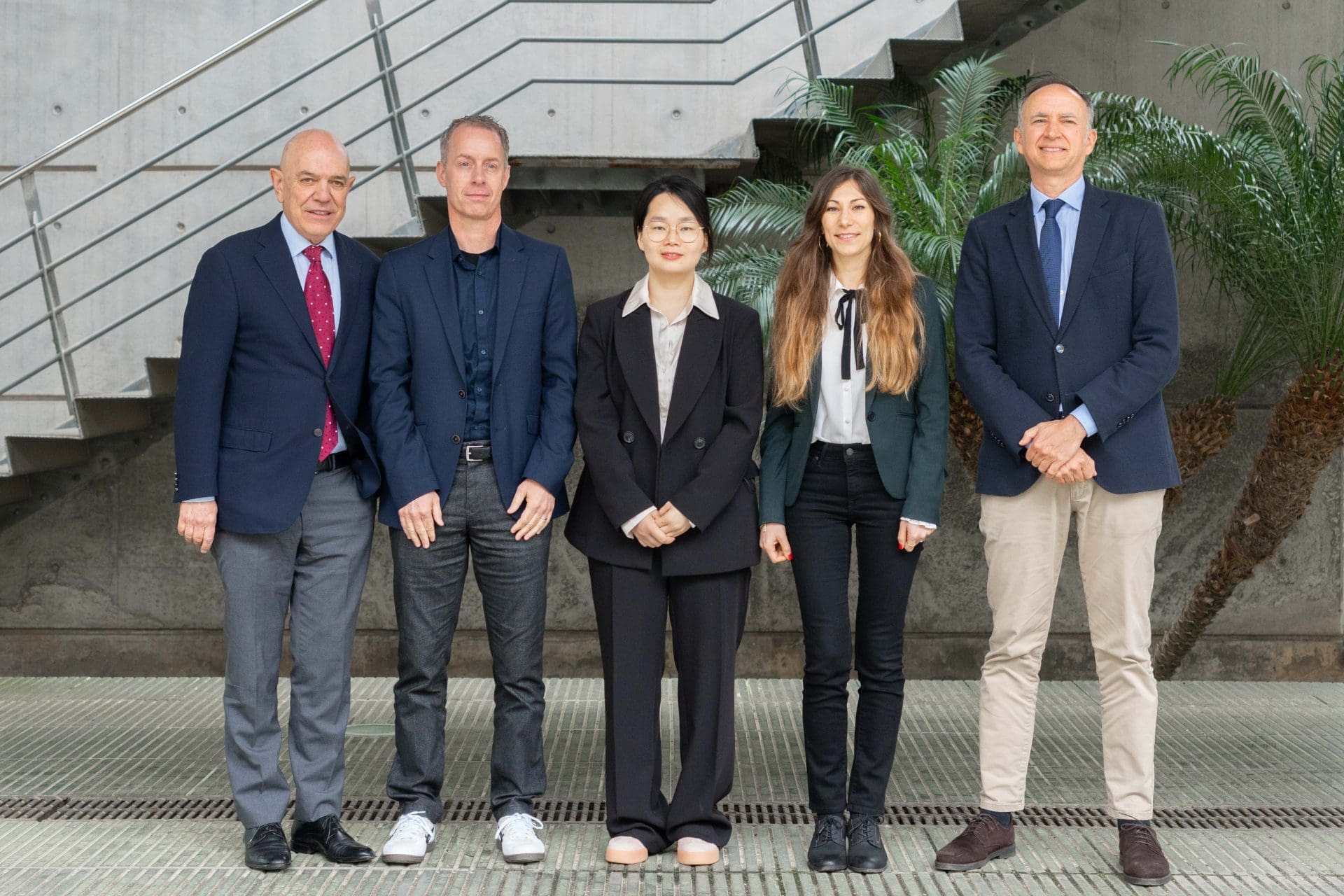D-CARBONIZE project: a new era for sustainable polymers
27th September 2022 -
The project D-CARBONIZE is a joint doctorate network that aims at using circular chemistry approaches to design and build recyclable bioplastics using biomass as a starting material
Global excessive disposal of plastic waste is creating serious problems leading to microplastics accumulating in our ecosystems and plastic patches growing in the oceans. To overcome these adverse side-effects, we need a paradigm shift from a linear to a circular polymer production and (re)use. The D-CARBONIZE project aims to close this existing gap transitioning to a circular use of renewable-carbon derived polymers.
D-CARBONIZE is a joint doctorate network that brings together a 15-partner consortium led by Prof. Arjan W. Kleij at the Institute of Chemical Research of Catalonia (ICIQ). The project will train twelve doctoral students on the use of circular chemistry approaches to design and build monomers from biocarbon sources that will be used to produce recyclable bioplastics. “We will aim for the creation of plastics with similar or even better functionalities using biomass as one of the starting materials. In some years, the coating of your smart phone or any other consumer product might be made from recycled materials,” explains Prof. Kleij, ICIQ group leader and ICREA professor.
The 15 partners in the consortium bring together expertise from different fields ranging from the catalytic generation of the biobased monomers to life-cycle analysis of the newly prepared polymers and materials. The consortium is made up by six beneficiaries: ICIQ, University of Liege, Groningen University, Centre National de la Recherche Scientifique (CNRS), Heidelberg University and the Technological Institute of Plastics (AIMPLAS). The team is further complemented by five companies that will host the students’ short stays: BASF, Total Energies, Corning, Polykey Polymers and Celabor SCRL. The non-governmental organization CO2 Value Europe supports dissemination and training actions, whereas the associated universities Universitat Rovira i Virgili, the University of Rennes and the Universitat Politècnica de València will provide double PhD titles.
 New solutions for the valorisation of biocarbon
New solutions for the valorisation of biocarbon
The overarching idea behind the project is to minimize the carbon footprint of plastic materials through a dual approach. This encompasses the design of recyclable polymers that once reaching their end-of-life can be re-used or re-purposed for new applications. The use of biomass and carbon dioxide will reduce industry´s dependence on petrol-based carbon in plastic production. “If you use biomass instead of petrol-based feedstock, the new process will have a smaller carbon footprint by default,” explains Kleij.
The D-CARBONIZE team will use various types of biomass including glycerol from the biodiesel industry as well as terpenes and sugars from plant or fruit waste to produce monomers, polymers and plastic materials through catalytic transformations. Once this is achieved, the consortium members will strive towards recycling of the polymers into their monomeric form or providing new linchpins for polymer development, thereby creating atom-circularity. “We need to start thinking about how we can efficiently recycle polymeric products and their constituents,” states Kleij.
Future leaders
Each of the students participating in this joint doctoral network will receive a double doctoral degree from two of the universities that participate in the project. During a period of three years, they will receive a holistic training that will allow them to understand and design new bioplastic value chains. This transversal training will allow the students to use catalysis as a key driver for the generation of sustainable monomers, polymers and materials being part of the value chain. The innovative part of the training comes from a partial project execution at two distinct host institutions, while another part will be carried out at industry through secondments with the student being exposed to commercial requirements, industrial installations, process scale up and economic as well as safety assessments.
“The twelve PhD students of this project represent a group of professionals who, over time, will further shift the focus towards a circular chemistry – they are the future experts who will bring novel solutions for sustainable polymer synthesis and the valorization of biobased carbon,” concludes Kleij.
The doctoral network will start on March 2023 with an open selection process to hire the doctoral candidates, who are expected to start working on the project by September 2023, when the D-CARBONIZE kick-off meeting will be held at ICIQ.
 This project is funded by the European Union, under Grant Agreement No. 101073223
This project is funded by the European Union, under Grant Agreement No. 101073223
Related news

Let's create a brighter future
Join our team to work with renowned researchers, tackle groundbreaking
projects and contribute to meaningful scientific advancements







 14-03-2025
14-03-2025 















